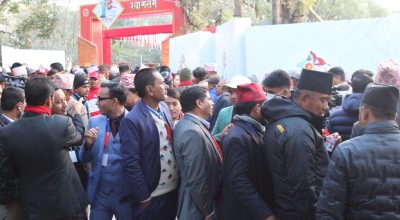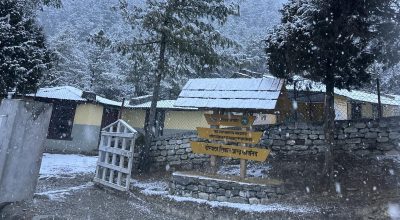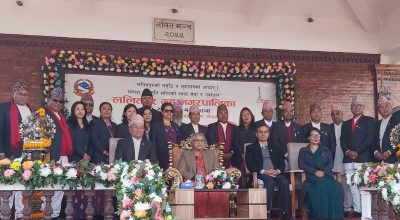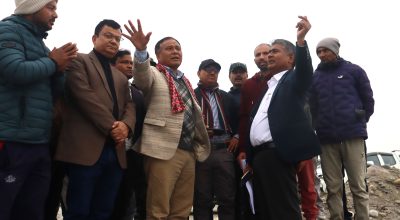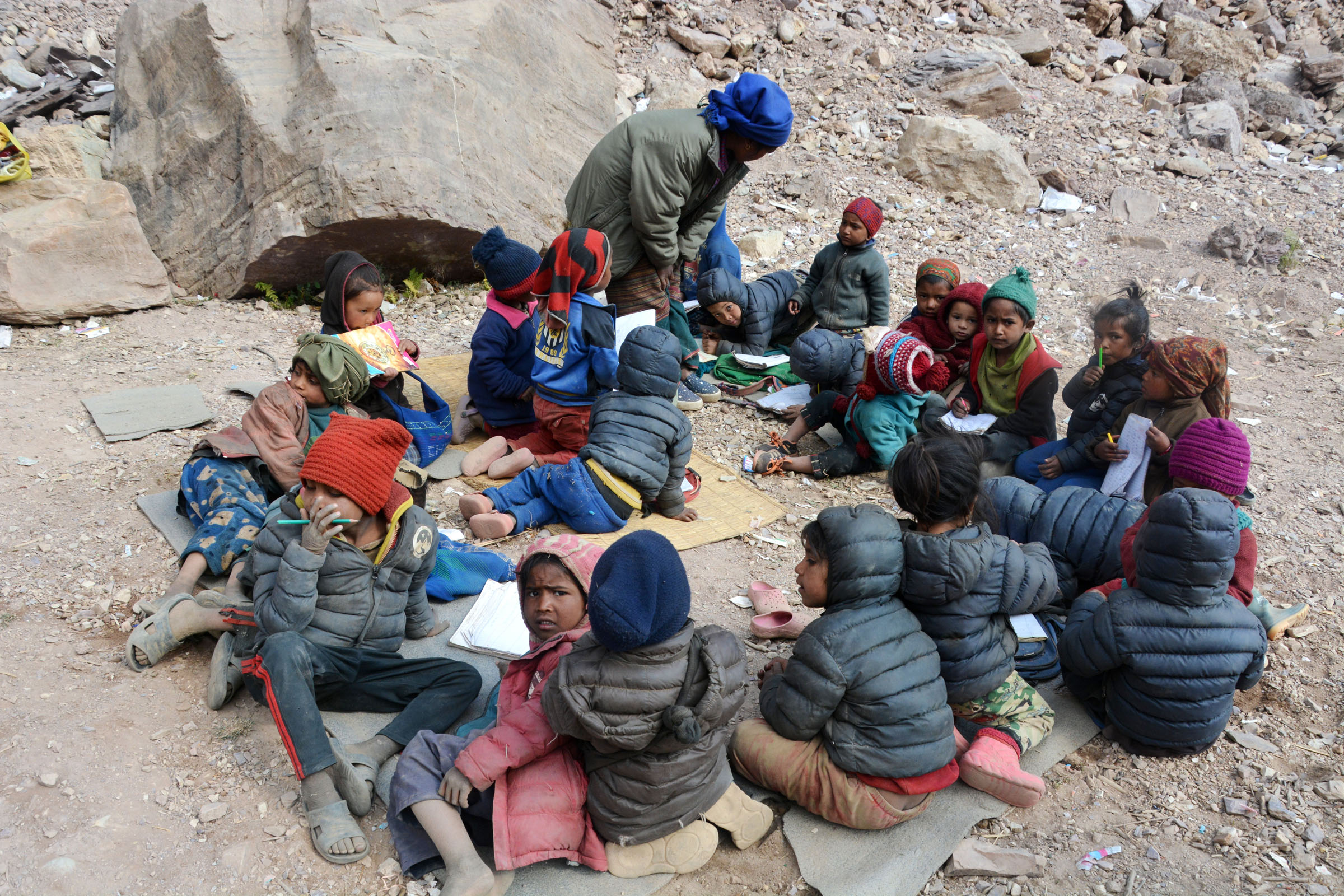
Kathmandu, May 1: The government will be extending the child nutrition grant programme to all 77 districts of the country.
At present the government has been distributing Rs 532 as child grant to the children below five years old in 25 selected districts as well as to children below five years old from Dalit households of all 77 districts.
Minister for Women, Children and Senior Citizens, Bhagawati Chaudhary outlined the ongoing efforts to broaden the scope of the nutrition grant programme, and increasing the grant as 532 is insufficient for the nutritious food.
“We are dedicated to ensuring that every child in Nepal, regardless of their location, receives the essential nutrition support they need for healthy growth and development,” said Minister Chaudhary during her address at the event ‘Policy Dialogue on Social Protection and Child Grant in Nepal’ organized by the Social Protection Civil Society Network and INSP!R Nepal here on Tuesday.
The Constitution guarantees various social and economic rights, including the rights to social security for vulnerable groups consisting of children. Article 43 of the Constitution preserves the fundamental right to social protection for all children. Similarly, The Child Rights Act 2018 provides a bundle of rights to children, including the rights to a dignified life, appropriate care, nutrition, and free basic health services.
Director of the National Planning Commission, Loknath Bhushal, presented about the provisions mentioned in the Integrated Social Protection Framework- 2080 and highlighted the role governments, civil society organizations and trade unions for implementing it. Similarly, an expert of Social Protection Basant Raj Gautam, presented about the importance of investing in children, and emphasized the overall status, need to increase child grant and its future impact to the Nation.
Speaking in the programme, Chairperson of the Women and Social Affairs Committee of the Federal Parliament, Kiran Kumar Shah, emphasized that the foundation of a ‘Prosperous Nepal and Happy Nepali’is only possible if the government invest in children.
Ambar Bahadur Thapa, Chairperson of the Education, Health and Information Technology Committee of the Federal Parliament, expressed concerns and advocated for universal access to education and healthcare for all children.
Federal Member of Parliament and CPN-UML Whip Sunita Baral emphasized that the investment made in the field of children is scattered and it should be integrated while Coordinator of the Parliamentary Group for Child Rights and Federal Member of Parliament Ranju Kumari Jha emphasized the need to allocate the social security allowances based on identified needs and prioritize investments in children.
She reiterated the importance of ensuring that resources are directed towards addressing the specific requirements of children, underscoring that doing so is crucial for their well-being and development.
Federal Member of Parliament Dayal Bahadur Shahi emphasized that in the context of Nepal Social Security Allowance programme was initiated only recently, however its effectiveness is evident, underscoring the importance of prioritizing the investment to children within the ambit of social security.
Ram Kumar Phuyal, a member of the National Planning Commission, said that in the next financial year and the next five-year interim plan, especially when more than 15 percent of the total budget of the federal government is spent on social security, that money should be focused on children and senior citizens, and the youth generation should be empowered by competition, production and productivity. He focused on giving the priority to contribution-based social security, to connect with independence and self-reliance, sustainability and life cycle.
Members of Parliament and concerned members of political parties emphasized the need to bolster investments in children and integrate them into the broader social security framework. Suggestions were made to increase the Child Nutrition Grant, allocate budget for implementing an integrated social protection framework, and prioritize investments in children.
In the programme, more than hundred attendees participated, including Roshani Karki, Deputy Secretary of the Ministry of Health and Population; Kul Bahadur Khadka, Deputy Secretary-General of the Nepal Trade Union Congress, Mina Sharma, Chairperson of CZOP, Bhawa Raj Regmi, Secretary of the Non-Governmental Organization Federation, Gopal Nepali from Save the Children; Shyam Adhikari from World Vision; and Om Thapaliya from HomeNet and INSP!R Nepal, stressed the urgent need for the state to address issues related to children, especially those concerning the welfare of children from marginalized communities, children with disabilities, and children affected by various forms of violence.
They suggested for appropriate acknowledgment from the state, urging for the inclusion of children’s issues within the scope of social security, allocation and provision of a separate budget code for children, inclusion of topics such as child-friendly local governance, nutrition-friendly local governance, national pride for children, and Children and School are the Peace of Zone, to enhance investment in children. They also requested an increase in funding to improve the quality of nutritious day meal programs and expand the programs up to class 10 from the recent initiatives of class 5.
The symposium witnessed attendance from various stakeholders, policymakers including Bimala Subedi, Chairperson of Law, Justice and Human Rights Committee of the Federal Parliament, Federal Members of Parliament, Vice-Chairperson of the National Child Rights Council, Bam Bahadur Baniya, the Executive Director of Social Security Fund, Kabi Raj Adhikari, Usha Mishra from UNICEF, Government Officials, Development partners, civil society organizations, trade unions, and human rights activists. The event was organized jointly by the financial support from UNICEF, Save the Children, and We Social Movement (WSM).
As Nepal approaches the final stages of formulating policies, programs, and budgets for the fiscal year 2081/82, the symposium aimed to ensure robust policies addressing comprehensive social security issues, particularly focusing on the needs of children.





